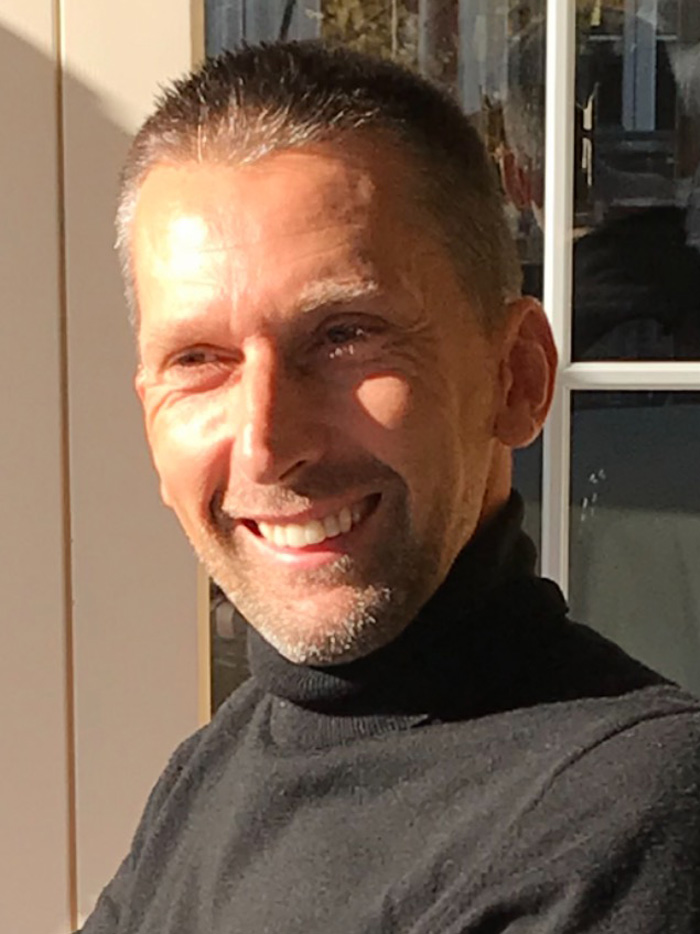A place
of life
What characterizes the places where we feel comfortable? “Feeling good” is something very personal and everyone defines it differently. We believe that it is above all the people who shape a place. At Elias Hospice, that means the people who live there temporarily and the people who work there. A togetherness. Our house and our everyday life together are geared towards the patients.
This creates places of encounter and community – and places of silence and inner contemplation. The inpatient hospice is an open house. Relatives, friends and family of choice of our patients are always welcome. Experiencing music, art and culture, celebrating together and cultivating traditions: all this makes for a place that gives you a sense of security when saying goodbye.
“The only important things in life are the traces of love that we leave behind when we go.”
Albert Schweitzer
LIVING SAFELY AND WELL UNTIL THE END
The Elias inpatient hospice offers palliative care and support for seriously and terminally ill people. Improving the quality of life of the dying person – regardless of their nationality, religion, skin color, sexual and gender identity, illness or age: this is the focus of our actions. We guarantee professional care monitoring by cooperating services, doctors and medically trained staff.
But quality of care means more than palliative medical care and the alleviation of pain. For us, the involvement of relatives, consideration of the patient’s social environment and lifestyle and their right to make their own decisions and individual wishes are also part of a holistic care process.
The inpatient hospice
All patients have their own time and their own path. Some only stay for half a day, while others often stabilize thanks to the nursing and medical care they receive at the hospice, enabling them to live with us for a longer period of time. There is no “typical” day at the hospice – and there is also no “typical” course of the illness.
“Our aim is to create an atmosphere in our home that puts the patients at the center. We accompany them around the clock and organize their daily routine together with them. A late breakfast in bed, soup at night or a party with relatives in the garden – it can and should all be like this.”
Rolf Kieninger
THE DYING PERSON MUST NOT BE A TABOO
We were convinced of the idea and the need for a hospice for the greater Ludwigshafen area many years before the foundation stone was laid in 2004. But it was only thanks to the generous legacy of Gerda and Dr. Heinz Bauer and other donations (including a large donation from BASF) that the construction of the Elias Inpatient Hospice could be realized.
Gerda Bauer had been intensively involved with the idea of hospices since the late 1980s and had close contacts with the still very young German hospice movement. Before her death in October 1992 – Gerda Bauer was suffering from severe cancer – she and her husband had taken part in the seminar “Accompanying the dying” at the Heinrich Pesch Haus in Ludwigshafen.
Both spouses stipulated in their wills that after the death of the longest-lived, their assets should be used mainly for charitable purposes. Dr. Hans Heinz Friedrich Bauer died in 2000, and through the Caritasverband der Diözese Speyer e.V., a total amount of over 2 million euros found its way to the current site of the Elias Hospice, making the opening of our facility in March 2005 possible.
One house. one community
The inpatient hospice: 15 full-time employees and 25 volunteers.
An inpatient hospice requires a wide range of knowledge among the staff, but above all social skills. Palliative care and support are always a holistic process that cannot do justice to the patients without empathy, respect and communication within the team.
After all, a hospice is an open house and our patients are a direct part of our daily working environment. Our mood and attitude have a decisive influence on the reality of their lives. This is why internal dialog is so important and indispensable for patient-oriented team performance.
Our full-time nursing and care team consists of nurses, geriatric nurses and the responsible nurse. Our employees are specially trained and sensitized for work in the palliative area and are available to our patients 24 hours a day.
“What seems impossible for one person, many can achieve together!”
Multimedia
If only you knew…
“If only you knew . . .” is a film about saying goodbye to Bärbel Freund – but even more about living until the end. Frauke Hess, editor of RNF, accompanied the Mannheim cancer sufferer in the Elias hospice for the last three months before her death.
NEAR LIFE – NEAR DEATH
The Hospice Elias is a place of shared life. Because even if dying is a companion of the house, it is above all life in its diversity and connectedness that has found a home here. A film by Frauke Hess, RNF.






